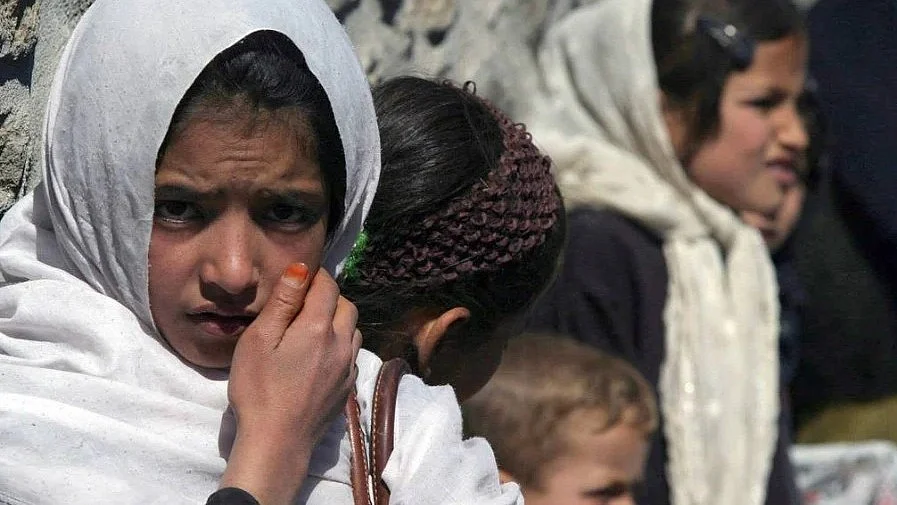Four years of Afghan girls being barred from education a “defining injustice”: UNICEF chief
Executive director Catherine Russell said the policy continues to have devastating consequences for millions of girls — and the country’s future

UNICEF (United Nations Children's Fund) has raised urgent concerns over the ongoing ban on secondary education for adolescent girls in Taliban-administered Afghanistan, marking four years since girls were barred from attending school beyond grade six.
In a strongly worded statement, UNICEF executive director Catherine Russell said the policy continues to have devastating consequences for millions of girls — and the country’s future.
“It has been four years since adolescent girls in Afghanistan were barred from attending school beyond grade 6. By the end of 2025, more than 2.2 million adolescent girls will have been excluded from education,” Russell said.
She also warned that the number is likely to rise, particularly with the influx of returnees (former refugees to other countries, such as neighbouring Pakistan): “With more than 2 million Afghans returned from neighbouring countries this year, the number of girls unable to attend school will rise further.”
The call comes amid worsening humanitarian conditions in Afghanistan. Following a recent earthquake that claimed over 1,000 child lives, Russell highlighted the critical role of educated women in disaster response and healthcare systems — roles that are increasingly at risk under the current restrictions.
“In the aftermath of the devastating earthquake in Afghanistan, which claimed the lives of 1,172 children, the critical role of educated and well-trained female health and social workers has never been clearer,” Russell said.
“These women are essential to humanitarian response efforts, particularly in a society where strict gender segregation limits the ability of male workers to respond to the needs of women and [mixed] households.”
Girls losing more than just lessons
While millions of children globally began a new academic year in 2025, Afghan girls remain excluded from classrooms. Russell described the ban as “one of the defining injustices of our time”, noting that its long-term consequences extend far beyond education.
“This ban is a profound threat to the country’s long-term stability and progress. No nation can thrive when half its population is left behind,” she said. “If Afghanistan is to move forward, it needs the full participation of men and women to drive a more resilient workforce, boost economic development, and meet the needs of a growing nation.”
Russell emphasised that Afghan girls are being deprived not only of academic knowledge, but of personal growth and the chance to determine their own futures.
“Afghanistan’s girls are losing more than academic lessons; they are being deprived of social contact, personal growth, the chance to shape their futures and fulfil their potential,” she said.
The UNICEF chief also expressed grave concern about the mental health toll and rising social risks stemming from isolation.
“I am especially concerned about the millions of girls who are confined to their homes, and the impact of that isolation. My UNICEF colleagues are documenting increasing mental health issues, early marriage and high birth rates. All of this is avoidable,” she said
UN calls for urgent reversal of the ban on women’s education
UNICEF reiterated its demand for the immediate reopening of secondary schools for girls.
Russell concluded with a direct appeal to Afghanistan’s de facto authorities: “UNICEF urgently calls on the de facto authorities to lift this devastating ban and allow every girl in Afghanistan to attend school — from primary to secondary and beyond.”
Since the Taliban regained control of Afghanistan in August 2021, international pressure has mounted to reverse education restrictions on girls. However, access remains severely limited, especially in public secondary and higher education.
Recently, the International Criminal Court put out arrest warrants for Taliban leadership over their persecution of women and girls.
Follow us on: Facebook, Twitter, Google News, Instagram
Join our official telegram channel (@nationalherald) and stay updated with the latest headlines
